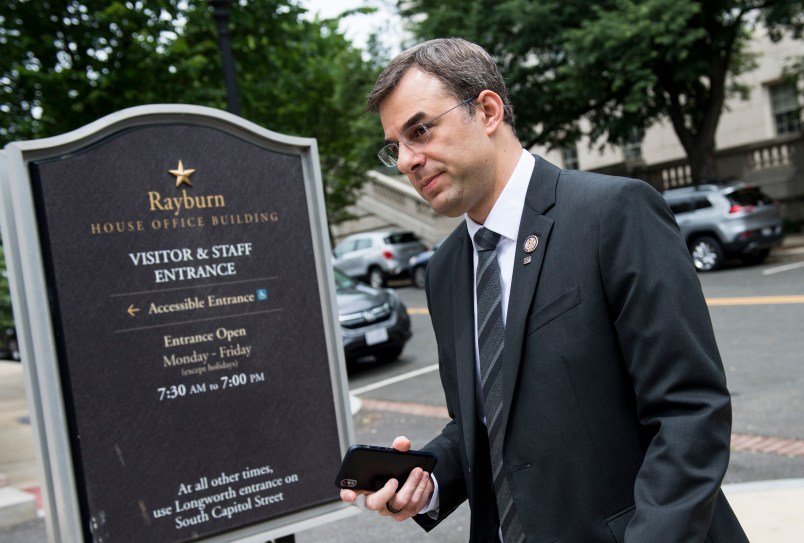Rep. Justin Amash (R-MI) earned the condemnation of his Republican peers, cold shoulders from large donors, a presidential tweet, and a primary challenger after he became the first congressional Republican to call President Donald Trump’s actions impeachable.
On Thursday, he defended the impeachment call with an essay-length Twitter thread, adding to one he posted on Monday defending his call for impeachment.
Below are some highlights, or you can read the full thread here:
Mueller’s report describes a consistent effort by the president to use his office to obstruct or otherwise corruptly impede the Russian election interference investigation because it put his interests at risk.
— Justin Amash (@justinamash) May 23, 2019
The president has an obligation not to violate the public trust, including using official powers for corrupt purposes. For instance, presidents have the authority to nominate judges, but a president couldn’t select someone to nominate because they’d promised the president money.
— Justin Amash (@justinamash) May 23, 2019
It also revealed criminal activities, some of which were committed by people in Trump’s orbit and, in the case of Michael Cohen’s campaign finance violation, on Trump’s behalf.
— Justin Amash (@justinamash) May 23, 2019
The investigation began before the president was elected and inaugurated. After Trump assumed the powers of the presidency, Mueller’s report shows that he used those powers to try to obstruct and impede the investigation.
— Justin Amash (@justinamash) May 23, 2019
Trump, through his own statements—such as complaining about people who “flip” and talk to investigators—and through communications between his personal counsel and Manafort/Cohen, gave the impression that they would be pardoned if they did not fully cooperate with investigators.
— Justin Amash (@justinamash) May 23, 2019
Some of the president’s actions were inherently corrupt. Other actions were corrupt—and therefore impeachable—because the president took them to serve his own interests.
— Justin Amash (@justinamash) May 23, 2019
The president has authority to fire federal officials, direct his subordinates, and grant pardons, but he cannot do so for corrupt purposes; otherwise, he would always be allowed to shut down any investigation into himself or his associates, which would put him above the law.
— Justin Amash (@justinamash) May 23, 2019



